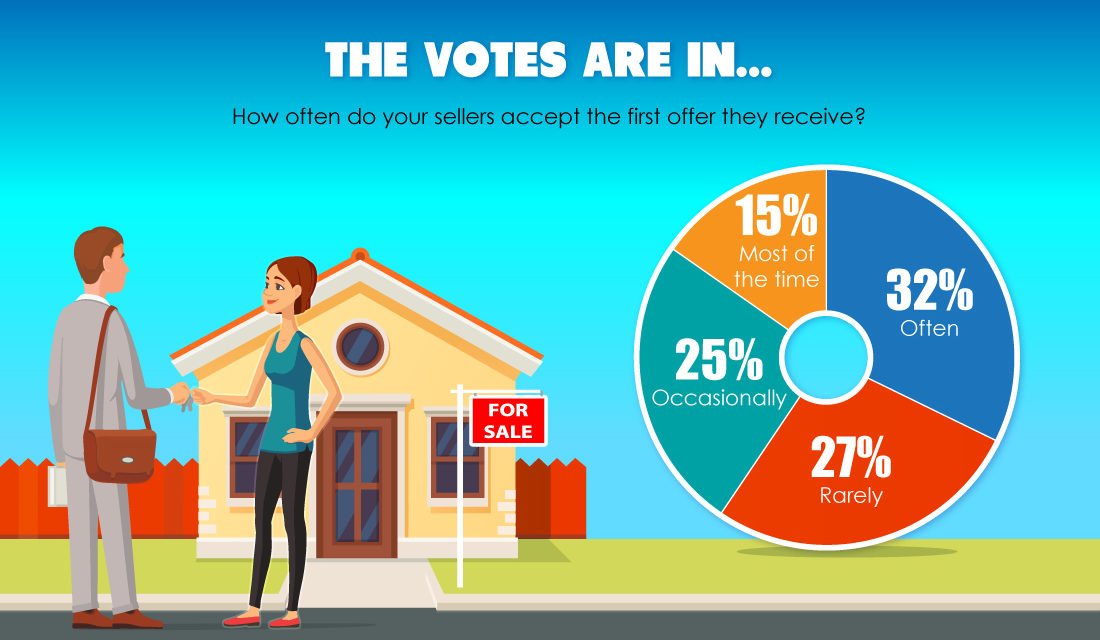Over the past few years, first tuesday has asked readers whether sellers typically accept the first offer with which they’re presented, and over time the responses have yielded an interesting pattern.
Since 2016 — when the reality of the post-Great Recession housing market recovery was still setting in — about a third of respondents have answered consistently that sellers “often” accept the first offer they receive.
The second most popular choice, at a steady quarter of respondents, is that sellers “rarely” accept their first offer. However, few respondents — around 15% — have been willing to claim their sellers accept initial offers “most of the time.” Although exact percentages vary slightly, these responses have remained largely the same in the last three years.
Given the demonstrable signs of an oncoming recession — the severity of which remains up for debate — these consistent observations of seller behavior could mean a couple of different things.
Desperate times call for disparate measures
The data point to a body of sellers disinclined to alter their behavior in the face of a recession that’s right on top of them. The only difference between the “often”s and the “rarely”s is a matter of outlook. Sellers who remember the struggles of the Great Recession will take quick offers over high offers, while those who’ve settled into the idea that the economy is booming are more willing to hold out for something better.
While these competing attitudes go a long way toward explaining the apparently contradictory results of the poll, when coupled with obvious signs of recession they also point toward an unsurprising trend.
Historically, sellers’ outlooks tend to lag behind the realities of the market.
This often presents itself as a phenomenon called sticky pricing. Also known as a money illusion or price persistence, sticky pricing refers to the idea that sellers will want to get more for their homes than their homes are actually worth. In other words, they’ve gotten so used to the prices of a booming market that when the market takes a downward turn, sellers’ expectations of the price they ought to get for their property don’t match up to the reality.
Related article:
https://journal.firsttuesday.us/the-votes-are-in-california-home-prices-head-down/68060/
As the coming recession rears its ugly head and prices start falling in earnest, we expect to see more sellers reject their initial offers, holding out for a buyer who will offer what the seller believes their home to be worth, leading to even lower sales volume.
While it’s important to ensure your sellers get the most buck for their bang, encourage them to be realistic about the value of their home. In a recessionary market, sometimes it’s best to take what you can get, as hard as that is for some sellers to hear.














